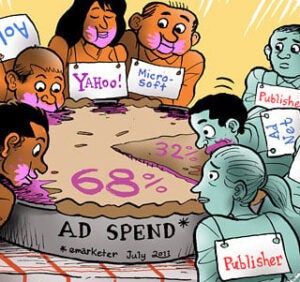What’s a good metaphor for managing signal loss?
It’s not unlike building a train while it’s already chugging down the tracks or riding multiple horses at once, according to Remco Westermann, CEO of MGI, the ad tech holding company that owns Verve Group, on this week’s episode of AdExchanger Talks.
Sounds a little chaotic.
But developing ad technology that doesn’t rely on user-level data is also an opportunity for ad tech companies to get creative with targeting and segmentation.
“There are disruptions in the market,” Westermann says, “and cookieless is a great thing for a younger company like we are to really gain market share.”
Two years ago, Verve released an early version of an on-device targeting tool for iOS called “ATOM,” which stands for anonymous targeting on mobile. Data is only used to create aggregated cohorts and no personal information ever leaves a user’s device.
Although it took a little longer than expected to get ATOM to a point where it was “market ready,” Westermann says, Verve is now in the process of rolling it out to more customers.
But investing to develop its own privacy-focused targeting tech doesn’t obviate the need to experiment with other technologies – or ride multiple horses, if you will. For example, Verve has been testing the Privacy Sandbox – the Android and Chrome versions – and staying on top of Apple’s SKAdNetwork for measurement.
Ad tech companies have to be as flexible as possible, Westermann says, because there won’t be one single solution that solves for signal loss.
“A company in the space needs to be able to work with a bunch of solutions,” he says, “and be able to handle a lot of different ways for targeting – with or without identifiers.”
Also in this episode: A peek behind the curtain at Verve’s attempt to acquire MediaMath last year (it got really close), what Verve looks for in an acquisition target (culture fit is key), why mobile gaming is still a good business despite a downturn last year (it’s just mature now) and what’s in Westermann’s personal art collection.
For more articles featuring Remco Westermann, click here.
















